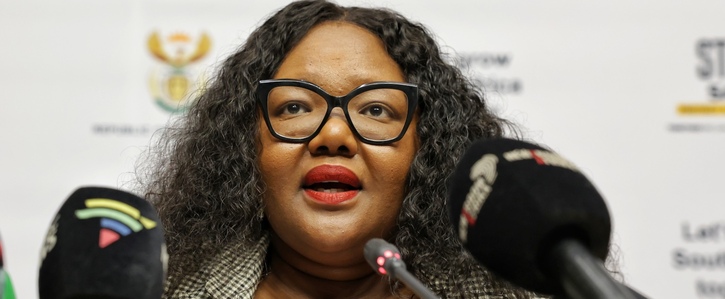50 signatures reached
To: Siviwe Gwarube, Minister of Basic Education
Tell The Minister to Ensure Access to Mathematics for Children in Low-Income Communities

Children from rural and township low-income communities are being denied access to a tool to fight poverty. 462 public schools in low-income communities do not offer mathematics as a subject(4). The effectiveness of government initiatives to boost participation and get good passes in Mathematics is questionable, because not only has the number of learners writing mathematics final exams dropped from 50% to 35,7% but South Africa also remains at the bottom of all international rankings when it comes to learning outcomes. The minister said “We are not sitting back and allowing children in affected communities to be left behind,” but that is exactly what the department is doing. The department has known of such schools for years yet the problem persists. It cannot be that there are children whose choice to choose mathematics is taken away. By doing this, the department is determining the future of these children and not in a good way. None of these learners will ever be able to study towards being doctors, engineers or accountants. The minister said that as the department, they will accelerate measures to solve this issue. To that end, we demand that the minister:
- Tell us what the measures are
- Publicly commit to ensuring that all learners have access to mathematics in 2026
Why is this important?
Black people are hit hardest by unemployment. Besides being the subject upon which logical thinking, problem-solving are built, mathematics opens the door to careers in science, technology, and engineering(5). This means that if Sisonke wants to be a doctor, an accountant or engineer, she needs to study mathematics in high school. If she does not, then that dream cannot be a reality. Also, a qualification in STEM is highly beneficial to people facing high unemployment levels as one's chances of getting a job are high given the demand for people in those fields. Additionally, medical doctor, accountant and engineering jobs pay higher salaries which enable people from low-income communities to pull themselves out of poverty.
Children in low-income communities are being excluded from future economic growth. Public schools are divided into quintiles 1 to 5. This is based on the socioeconomic status of the communities they are situated in. Quintiles 1, 2 and 3 schools are schools that do not pay fees, making them the schools that serve children from low-income households. “Data shows that poorer learners are significantly less likely to be able to access options at many universities as they are not enrolled for Mathematics.”(3). And that is the department’s fault. How can the department say that its policy is that there must be at least 35 learners for a subject to be taught yet there is a school that has 161 learners in matric and all of them are doing maths literacy (6)? The department is not only going against its own policy but it is setting up children for difficulty in finding work in the future. “Schooling outcomes will likely benefit children at richer-paying schools, with learners from these schools better positioned to access opportunities associated with STEM post-school education and subsequently employment opportunities.”(3).
Above all that, the drop in the number of pupils studying mathematics also leads to a shortage of skills in the fields of Science, Technology, Economics and Mathematics (STEM). A shortage of skills means as a country we cannot come with new and better solutions to our challenges, compete with the rest of the world and create economic opportunities. This leaves our country underdeveloped and its people remain in poverty.
Above all that, the drop in the number of pupils studying mathematics also leads to a shortage of skills in the fields of Science, Technology, Economics and Mathematics (STEM). A shortage of skills means as a country we cannot come with new and better solutions to our challenges, compete with the rest of the world and create economic opportunities. This leaves our country underdeveloped and its people remain in poverty.
When the department denies children from low income communities access to mathematics, it is continuing the legacy of apartheid that denied black people entry to these careers. It is deepening inequality. And it is subjecting generations and generations of black children from low-income households to a never ending cycle of poverty. Let us call on the minister of education to grant children from low income communities access to mathematics. If enough of us can sign this petition, we can ensure that the minister moves to ensure that the thousands of children in rural areas and townships are able to study mathematics.
References
- https://www.gov.za/news/speeches/minister-siviwe-gwarube-basic-education-dept-budget-vote-202526-ncop-07-jul-2025
- https://stemlab.co.za/the-critical-need-for-stem-education-in-south-africa/
- https://www.gcro.ac.za/outputs/map-of-the-month/detail/grade-10-enrolments-by-type-of-mathematics-in-the-gauteng-province/
- https://pmg.org.za/committee-meeting/40662/
- https://www.tandfonline.com/doi/full/10.1080/20421338.2024.2417779#d1e165
- https://www.youtube.com/watch?v=cv7e-gDgPBQ
.png)